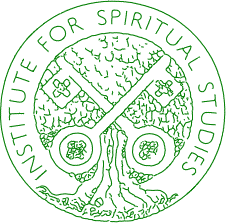

|
Seminar 6:
|
|
2003 marks the 400th anniversary of the death of Elizabeth I. Three specialist Tudor historians will discuss varying aspects of her life, personality and reign. Creative ambivalence: Elizabeth's spirituality as seen in her poetry and prayersElizabeth's poems and prayers were carefully crafted literary constructions. Yet they were also creative works written from the heart of a passionate woman. An analysis of her poetry and prayers in the new edition of Collected Works reveals characteristics of religious beliefs and their application to her political vocation. She held the classic Protestant doctrine of the totality of sin and the absolute gift of redemption by grace alone through faith in the blood of Christ, but her ideas of sanctification and opera humana were unusual, resembling those of Marguerite of Navarre's doctrine of the Spirit, and contemporary Benedictine doctrines. The process of personal renewal was God's providential answer to her own weaknesses, loneliness, uncertainties and the contingencies of life. She related transformation by the Spirit (and some kind of saving value in opera humana) to her vocation as head of state and the obligations of good governance. Moreover, Elizabeth sees her own providential path of renewal as part of the internal dynamics of a household-nation, the whole nation, functioning within the providence of God. Politics and religion were woven together in her spirituality, and may have set an example for the growth of religious-nationalist sentiments.
'. . . and after Mary, Elizabeth . . .'The accession of Elizabeth Tudor is usually treated as a welcome relief from the terrors of Mary's reign; she is conventionally seen as the first 'real' queen of England. This tradition misrepresents how much the half-sisters had in common, and how much the younger owed to her elder half-sister. Both, for example, had mothers disgraced as successive queens by decision of their father, Henry VIII, and both were degraded from royal Princess to royal bastard, with much opprobrium heaped upon each mother. Their bastardy became the excuse for the dying King Edward (their brother) to exclude them both from the line of succession, replacing them by (their cousin) Lady Jane Grey. They both received impressive humanist educations, which influenced both their reigns deeply. They shared many courtly accomplishments. Above all, Mary as the first queen regnant of England, set the precedents for how a queen could exercise power, both symbolic and actual. When highest authority was generally thought to be a male prerogative, the task Mary faced in establishing female royal authority in England is difficult to exaggerate, as is the extent to which the elder sister paved the way for her younger sister.
The Elizabethan Church SettlementFor a device that was supposed to establish consensus, the Church Settlement of 1559 has generated more than its share of controversy. Even its beginnings have been, and to some extent remain, a contested area in historical scholarship. The ways in which the Act of Uniformity was administered; the extent to which early Elizabethan Anglicanism was captured in a Calvinist time-capsule; the process by which the Settlement came to be accepted by English people and eventually even epitomise the English nation; the relationship between liturgical text and the practice and belief of this Reformed religion in traditional Catholic institutional clothing, will be the main themes of the talk, which will conclude with some thoughts on the importance of the Settlement in the development of the national identity of the English people.
|